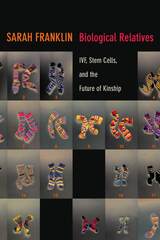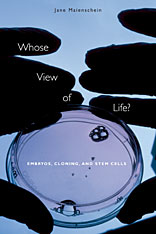

Ever since Dolly, the Scottish lamb, tottered on wobbly legs into our consciousness-followed swiftly by other animals: first, mice; then pigs that may provide human transplants, and even an ordinary house cat-thoughts have flown to the cloning of human beings. Legislators rushed to propose a ban on a technique that remains highly hypothetical, although some independent researchers have announced their determination to pursue the possibilities. Political scientist and well-known expert on reproductive issues, Andrea L. Bonnicksen examines the political reaction to this new-born science and the efforts to construct cloning policy. She also looks at issues that relate to stem cell research, its even newer sibling, and poses a key question:
How does the response to Dolly guide us as we manage innovative reproductive technologies in the future?
Various legislative endeavors and the efforts by the Food and Drug Administration (FDA) to oversee cloning, as well as policy models related to federal funding, individual state laws, and programs abroad, inform Bonnicksen's identification of four types of cloning policy. She analyzes in depth the roles of diverse interest groups as each struggle to become the dominant voice in the decision-making process. With skill and insight, she clears the mists from a complicated topic, and addresses the legal, political, and ethical arguments that are not likely to disappear from the national conversation or debates any time soon.

Saving lives versus taking lives: These are the stark terms in which the public regards human embryo research--a battleground of extremes, a war between science and ethics. Such a simplistic dichotomy, encouraged by vociferous opponents of abortion and proponents of medical research, is precisely what Jane Maienschein seeks to counter with this book. Whose View of Life? brings the current debates into sharper focus by examining developments in stem cell research, cloning, and embryology in historical and philosophical context and by exploring legal, social, and ethical issues at the heart of what has become a political controversy.
Drawing on her experience as a researcher, teacher, and congressional fellow, Jane Maienschein provides historical and contemporary analysis to aid understanding of the scientific and social forces that got us where we are today. For example, she explains the long-established traditions behind conflicting views of how life begins--at conception or gradually, in the course of development. She prepares us to engage a major question of our day: How are we, as a 21st-century democratic society, to navigate a course that is at the same time respectful of the range of competing views of life, built on the strongest possible basis of scientific knowledge, and still able to respond to the momentous opportunities and challenges presented to us by modern biology? Maienschein's multidisciplinary perspective will provide a starting point for further attempts to answer this question.
READERS
Browse our collection.
PUBLISHERS
See BiblioVault's publisher services.
STUDENT SERVICES
Files for college accessibility offices.
UChicago Accessibility Resources
home | accessibility | search | about | contact us
BiblioVault ® 2001 - 2024
The University of Chicago Press









